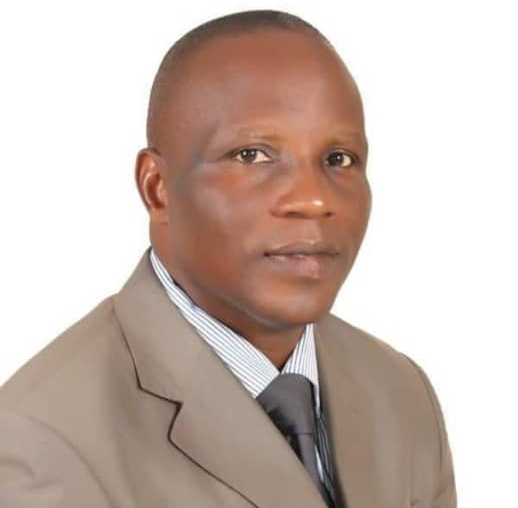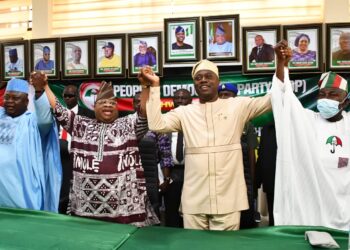

Three things have been identified as the main problems of Òkèògùn which have been limiting it’s progress and development over the years. These three things are religion, politics and town patronage or what some people have called ‘townism’.
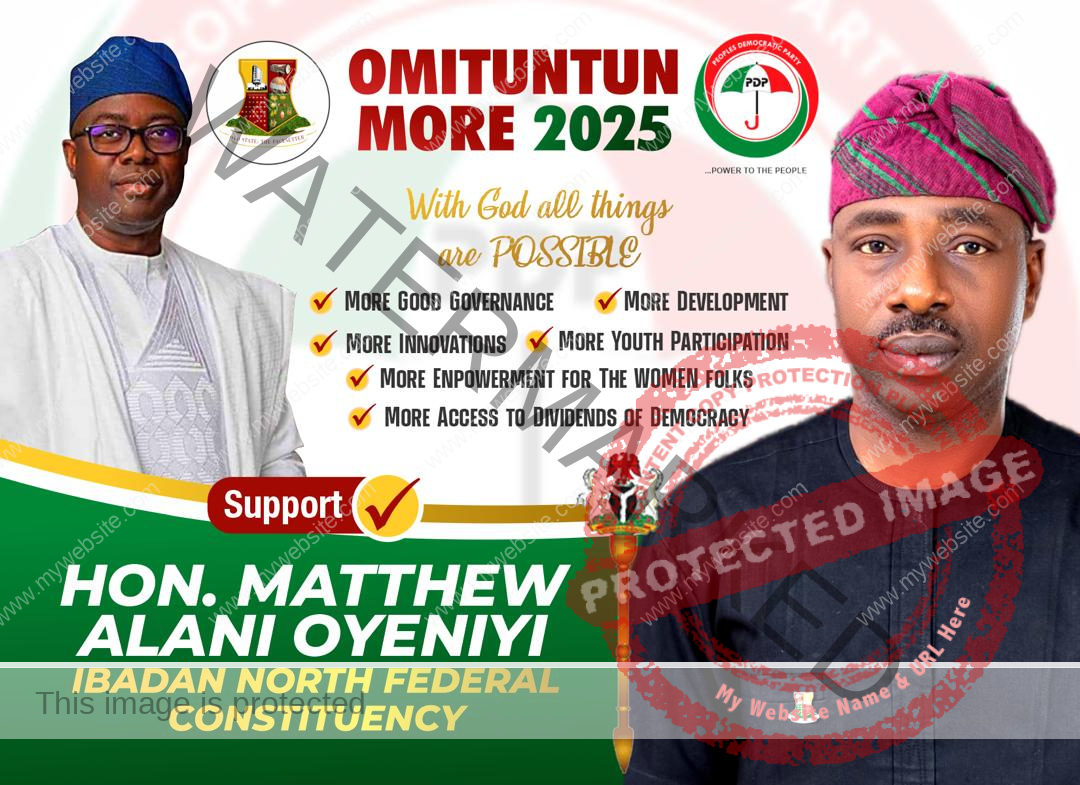
The truth of the matter is that, before any progress can be made, these three things must be addressed.
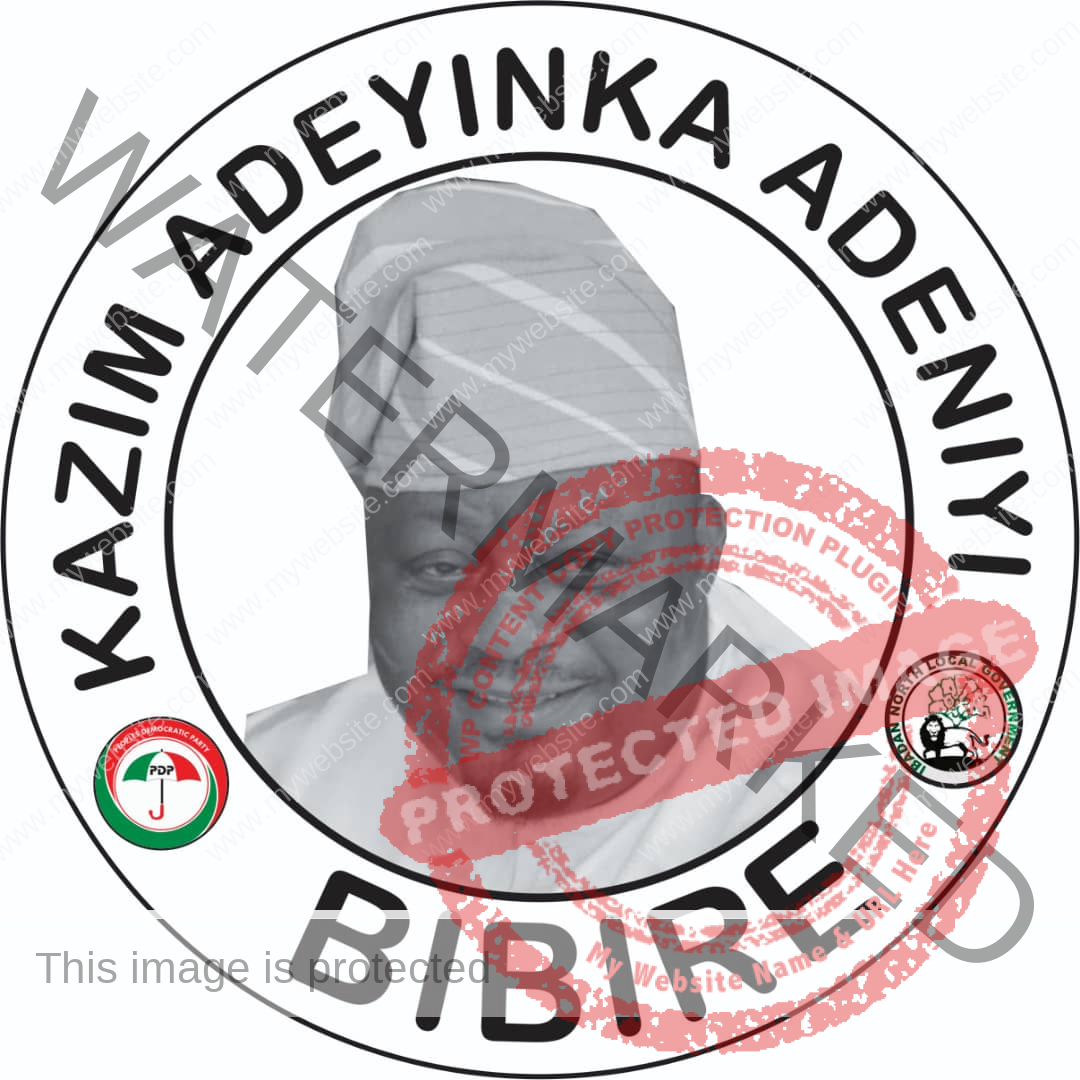
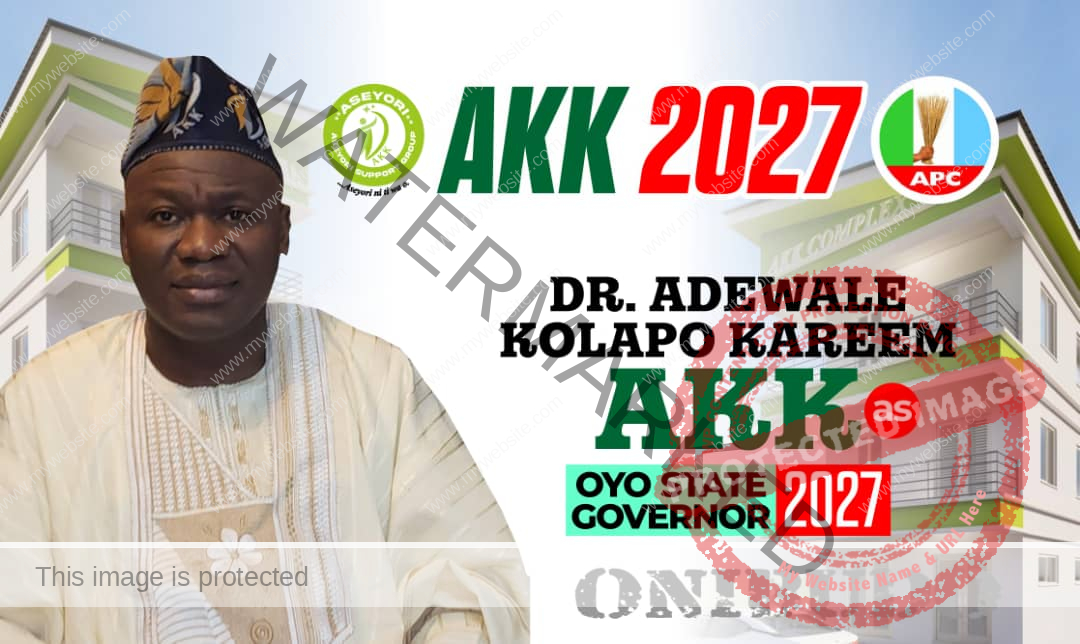
Now, let me talk about religion as a bane to our development in Òkèògùn.
Religion supposed to be an agent of development; but, from time immemorial, the way people have been playing the cards of religion has always led to chaoses, crises and full-blown wars. Religion has caused many of the wars on the planet earth that has claimed many lives and destroyed property.

A religious war or ‘holy war’ is a war caused or justified by differences in religious outlook. According to Encyclopedia of war, out of 1,763 known and recorded historical conflicts, 123 or 6.98%, had religion as their primary cause.
Good examples of religious conflicts and wars are Isreal-Palestinian conflict, the Syrian Civil War, Afghanistan War, Iran War, Iraq War, Boko Haram Crises, etc. However, according to Jeffrey Burton Russell, numerous cases of supposed acts of religious wars such as the Thirty Years’ War, the French Wars of Religion, the Sri Lankan Civil War, September 11 attacks and other terrorist attacks, the Bosnian War, and the Rwandan Civil War were all primarily motivated by social, political, and economic issues rather than religion.
But, whatever it is that is causing whatever form of war among human beings anywhere in the world, the fact of the matter has always been the presence of extremism, fundamentalism, and bigotry which have been providing the foundational reasons behind all the conflicts.
You may want to agree with that religion thrives on the philosophy of perfectionism. Perfectionism is a cold and sterile symptom of a legalistic mindset.
Someone with a perfectionist mindset is dangerous to please. There is nothing you do that a perfectionist will accept. He has a fastidious nature that will always find fault in the way other people are doing things. A perfectionist is a difficult person to relate or dwell with.
Let me give a good illustration of a perfectionist father that I read recently from a book. Beginning from age four, every autumn, this father used to assign his little boy to rake all the dry leaves that dropped in his big compound and, this boy, without any complain, used to rake the leaves and clean the yard to the best of his ability.
After each assignment, the boy will go with joy to announce to his father that, “Daddy, you are going to love it; the yard looks amazing!” But, after his inspection, over the years, the father will always come up with a common response that, “It looks good, son, but you missed some leaves over there…and a few over there…and there are a few more by the gate”.
It is obvious that this father was a perfectionist and the son always felt bad that he never measured up to the expectation of his father.
Let me tell anyone who cares to listen, it is the same thing with a religious extremist or fundamentalist who is a perfectionist that will never accept any other view than his own, no matter how good it is.
A perfectionist has been indoctrinated to think he is the best and will always suspect his neighbour instead of loving him. A perfectionist doesn’t believe in the philosophy that ‘no one is perfect’ because he always think his view of life is superior than tht of others.
This is what we see in many religions which is the foundation for many of the conflicts and wars that we have fought and will still fight in the world.
As we can see, war is brewing up in Òkèògùn if care is not taking. The case of Òjé-Owódé and Sèpètèrí must be nip in the bud with a permanent solution from the elders of those towns and all the elders of Okeogun.
Agba kìí wà l’ójà k’órí omo titun wó.
The truth of the matter is, as long as we all find ourselves in our mortal bodies, no one is and can be perfect. An anonymous saying says ‘no one is perfect…that is why pencils have erazers’. This is apt and correct to buttress the point I’m trying to make here.
Another truth we should always treasure before we overdrive our religious perfectionism is that, every human, no matter his or her religion, was created by God. That Muslim woman who wears hijab to cover her face and the Muslim brother who has kept his heavy beard near your house was created by God in His image and likeness and, that Christian brother who put stickers Winners, Redeemed, CAC, Anglican, Cherubim and Celestial stickers all around his house and car was a creation of God.
We were all created by God and God is our common and collective Source. If God is our Source, why then do we engage in hatred, bitterness, unforgiveness, anger, grudges, malice, animosity, vendetta, fighting and war among ourselves? Why are we critical and catty without minding that we can ruin ourselves? Why are we at loggerheads over religion that supposed to bring us together to look for world peace.
When I heard that Christians in Òjé-Owódé and Sèpètèrí are not buying items from Muslims in the same towns; when I heard that Muslims are not renting houses to Christians in many towns in Òkèògùn, I wonder what is happening! The question that have always come to my mind has been: where is love? Where is the genuine love that used to bind us together as one family? For those of us who grew up as teenagers in the 60s and 70s, where is love that used the bind Waheed and Reuben together?
I grew up in a family that has predominant Muslims. In fact, my own lineage is the only Christian among the family who came out from the same parents at Okeho. Our great grandparents, Mosoo, Opeola and Ajayi who migrated from Sèpètèrí to Òkehò, were Ifa worshippers and the first two children of Ojo, who was either the Mosoo or the descendants of Mosoo (we can’t clarify), Iya Adepate and Baba Salami Fagbemi, took to Islam while the last born, Baba David Akande, our own progenitor, took to Christianity because, as a carpenter/furniture maker, he was relating more with the white people during the colonial period.
At Ile Mosoo, Ijo, Okeho, we grew up among ourselves and never suspected ourselves. During Ileya we used to go to Yidi and, during Christmas, my cousins used to go to Church with us. We used to do ‘káyókáyó’ together and used to eat ‘eran-àgbò’ during Iléyá’. Then, at Christmas, we used to eat rice and chicken after Church; during Easter time, we used to attend Galilee at Sùkúù Ìsìà together.
We met our parents in deep family relationship without anyone causing division among them and that is what we have held on up till today.
Recently, I and my siblings of the same mother decided to dig a borehole in the family house and we linked water to all the family houses at Ile Mosoo, Ijo Okeho. In addition, we put tiles on all the graves of our grandparents who were buried in the family house and our grandmother was the only Christian among them.
So, what exactly is happening in Òjé-Owódé, Sèpètèrí and other towns where we are experiencing religious heat? Are Christians not of the same bloodline with Muslims in those towns? Why should there the religious crisis over foreign names like ‘Medina’ and ‘Jerusalem’? Why should Yoruba people prefer to give Arabic and Aramaic names when there are beautiful Yoruba names? Can you see how we are enslaving ourselves to cause problem where there should be no problem?
I just relocated to Ibadan and I have been looking for how to connect some of our people who are active on Òkèògùn platforms. Someone like Waheed O. Waheed, ESV. Adéwoyin, Surveyor Kunle Busari and the likes. They are my Muslim brothers and I can see that we are together in the same business of how to move Òkèògùn forward. We are different in religion, but Òkèògùn’s development is our collective passion and we should pursue it without any recourse to our differences.
Human beings are naturally different without religion. And, talking about religion, each person should be allowed to make his or her choice. When I got to Surveyor Kunle Busari’s office few days ago, what I saw really amazed me! He introduced me to some pastors who are pastoring in Seven Day Adventist, Winners Chapel, Redeemed, MFM and the likes as his professional colleagues in the same office and he is the only Muslim surveyor among them. They are living in peace, harmony and unity among themselves and, except you are told, you won’t notice any difference in their office.
Whaoh! What a good example of how we should live among ourselves?
As I try to wind up this piece of writing, I want to believe that it is love, genuine love, that has disappeared from our midst. When I heard people preach about religious tolerance, I used to laugh within me because I always see tolerance as a mere mild palliative that can provide a first-aid solution to the problem on ground.
I don’t think God wants us to tolerate ourselves, He wants us to love ourselves. If I tolerate you, I’m not being sincere and genuine. If I tolerate you, I will still suspect you. If I tolerate you, I still give room to accept you conditionally, but not unconditionally.
But, as we can see, God loves us sincerely and genuinely even with our errors, mistakes and shortcomings. God loves the unlovable and that is the kind of love He wants us to transfer to our neighbours wherever we find ourselves per time.
So, the only solution to our problem is hinged on simple maxim ‘love your neighbour as yourself’. In other words, don’t tolerate your neighbour, love him. Love him as God loves everyone of us and He gives rain and sun to us in spite of our shortcomings.
Or, which day will God give rain to the saints, but not to the sinners? I don’t think there is any day like that.
Are we now saying that God will not punish the sinners? God will still punish every act of sin, but His love for the sinners is the reason why He is showing mercy on him till he repents. God doesn’t love the death of the sinner, but his or her repentance.
God is a God of judgment, but He is also a God of mercy. He always balances between judgment and mercy and He has never failed on this.
My final advice is that, we should emulate God if we want to have a better earth to live in. We should emulate God who loves us in spite of our weak points.
Thank you.
Favour Adewoyin is a Social analyst and Community Developer.

